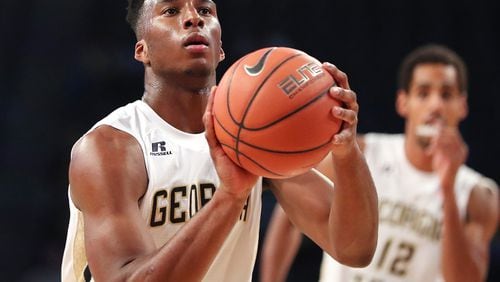When Georgia Tech plays Indiana in its first-round NIT game Tuesday, the teams will play with slightly altered rules as part of an NCAA experiment in place for the tournament. The rules will essentially change the game into a four-quarter format through alterations to the bonus rules.
Team fouls will reset to zero at the 9:59 mark of each half, and teams will start shooting free throws when the opponent accumulates five team fouls instead of the standard seven. Teams will shoot two free throws and not have a one-and-one situation.
Resetting the team foul total at the 9:59 mark instead of making the change to four quarters will allow the game to keep its “unique format” of two 20-minute halves, according to the NCAA.
The rules are similar to those used for international play and most leagues outside of the U.S. At the time the NCAA rules oversight panel approved the experiment in February, Tennessee coach Rick Barnes approved of the decision to approach the rules of the international game.
“I’m just for having a universal game,” he said. “I think the quicker we can get to that, I think it would help our game overall.”
NCAA women’s basketball changed to a four-quarter format prior to the 2015-16 season.
In another rules experiment, after a personal foul by the defense, the shot clock will re-set to 20 seconds rather than the full 30 or remain the same as it was when the foul occurred, whichever is greater. The purpose of the change is to try to increase the number of possessions in a game, which could increase scoring.
For the same reason, the NCAA reduced the shot clock from 35 to 30 seconds prior to the 2015-16 season.







